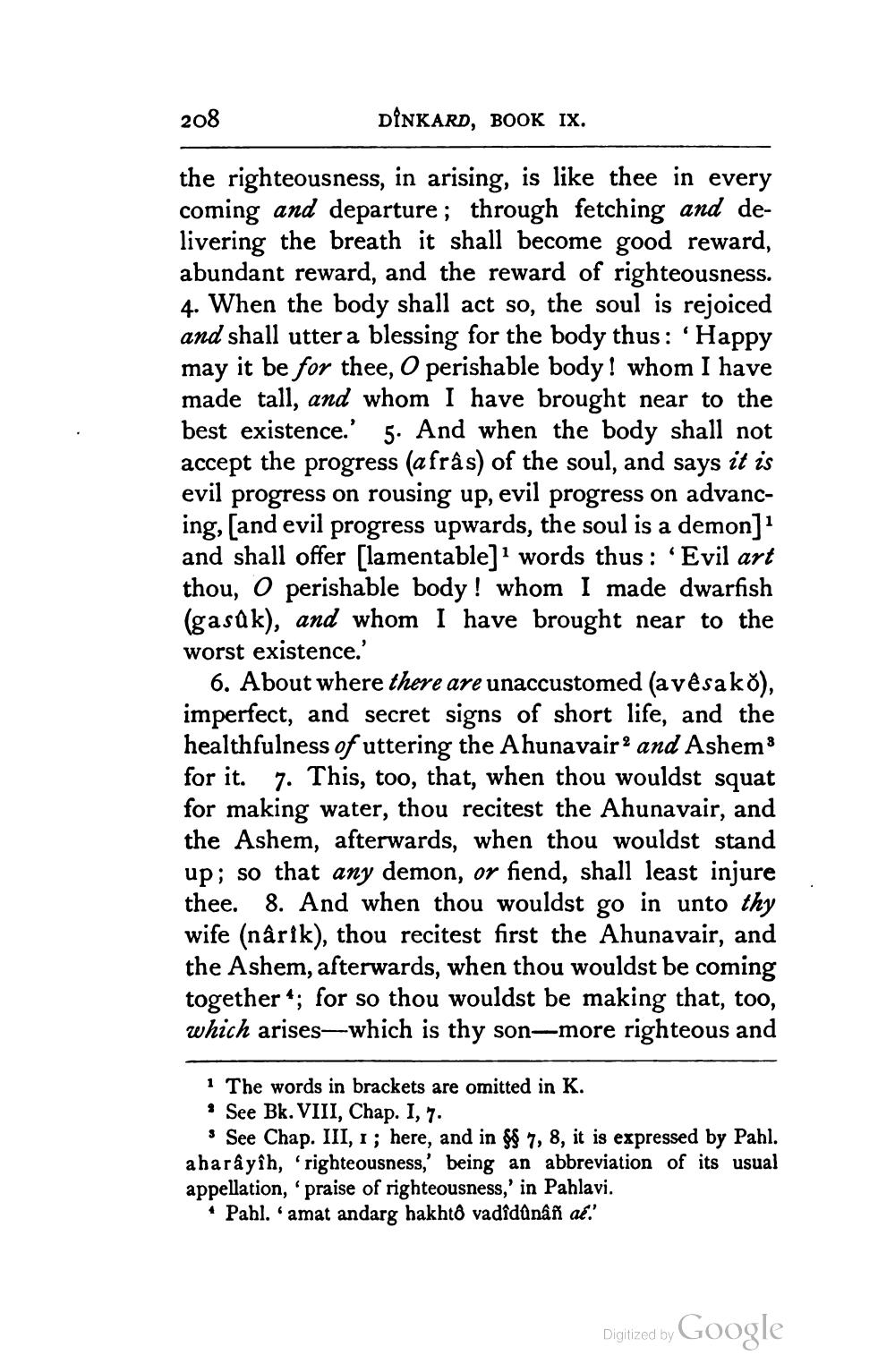________________
208
DÎNKARD, BOOK IX.
the righteousness, in arising, is like thee in every coming and departure; through fetching and delivering the breath it shall become good reward, abundant reward, and the reward of righteousness. 4. When the body shall act so, the soul is rejoiced and shall utter a blessing for the body thus: ‘Happy may it be for thee, O perishable body! whom I have made tall, and whom I have brought near to the best existence.' 5. And when the body shall not accept the progress (afrâs) of the soul, and says it is evil progress on rousing up, evil progress on advancing, (and evil progress upwards, the soul is a demon]" and shall offer (lamentable)' words thus : 'Evil art thou, o perishable body! whom I made dwarfish (gasak), and whom I have brought near to the worst existence.'
6. About where there are unaccustomed (avêsako), imperfect, and secret signs of short life, and the healthfulness of uttering the Ahunavaira and Ashem for it. 7. This, too, that, when thou wouldst squat for making water, thou recitest the Ahunavair, and the Ashem, afterwards, when thou wouldst stand up; so that any demon, or fiend, shall least injure thee. 8. And when thou wouldst go in unto thy wife (nârik), thou recitest first the Ahunavair, and the Ashem, afterwards, when thou wouldst be coming together 4; for so thou wouldst be making that, too, which arises—which is thy son—more righteous and
1 The words in brackets are omitted in K. • See Bk. VIII, Chap. I, 7.
s See Chap. III, 1; here, and in $$ 7, 8, it is expressed by Pahl. a harayih, righteousness,' being an abbreviation of its usual appellation, 'praise of righteousness,' in Pahlavi.
• Pahl..amat andarg hakhtô vadîdûnan af.'
Digitized by Google




